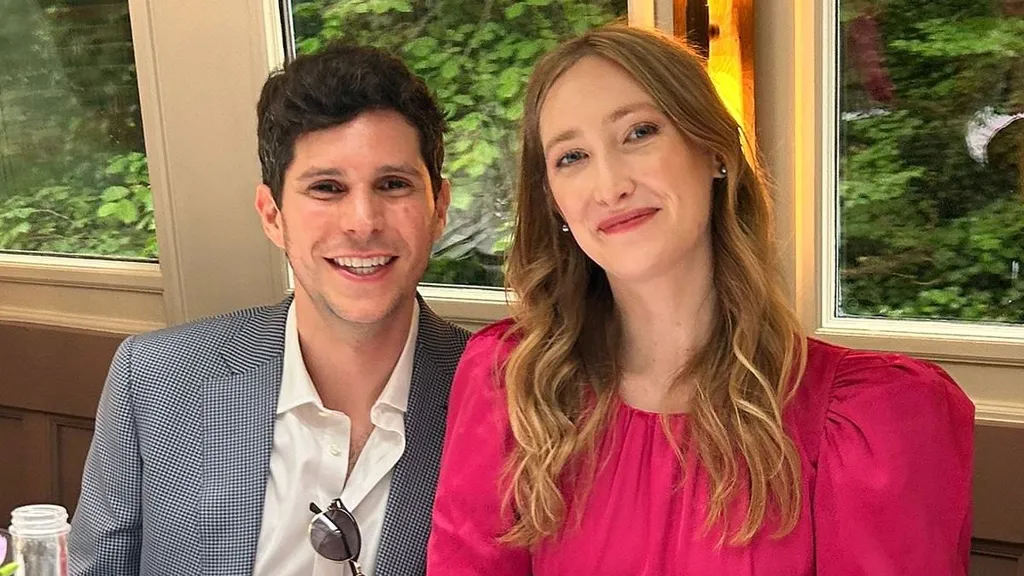I'm not sure if I'm technically Miss Gill or Mrs Gill. As of last summer I'm a married woman but I haven't taken my husband Adam's surname - nor do I plan to.
Gill was on my birth certificate and it will be on my gravestone too.
For me, the idea of giving up my name feels unnatural - and unfeminist. To take Adam's name seems archaic, as if marrying him makes me his submissive - and not in a sexy way.
To some this may seem odd and there are plenty of families who have fallen out over the thorny issue of whose surname the newlyweds go for. But a YouGov survey this week shows I'm not alone; just 35 per cent of women aged 18 to 34 say they would take their partner's name.
Interestingly, in countries such as Italy, Greece, Spain and China a woman keeps her maiden name even when married. Yet here in the UK, it's only in recent years that not taking your husband's name has felt like a viable option.
Historically, the tradition was tied to coverture, the doctrine that meant a woman had no legal identity separate from her husband, unable to earn money or own property.
Despite coverture being abolished in 1882, the surname habit lingered. And I'd argue that young people's rejection of a tradition rooted in such sexism is well overdue. I've never been one for tradition; in fact I was the one who proposed to my now husband.
We'd spoken about marriage on and off for the 13 years we'd been together. But we never felt the need to put what we knew in our hearts on paper. Plus, the patriarchal rituals of weddings felt ill-fitting with our lives; I didn't want a man to 'give me away' or to vow to 'obey' my husband.
Adam told me to give him a nod so he could plan a proposal if I ever changed my mind. But when I did, I realised there was no reason I couldn't do it myself.
Organising surprises has always been more my jam than his, so I spent ten months planning an elaborate proposal and surprise after-party for all our friends. Then I asked him to marry me, giving him a gold engagement band, and of course he said yes.
I then handed him the engagement ring I'd designed - our two birthstones, emerald and a tanzanite, side by side forever - and he asked me to marry him back. It was perfect.
When I shared the news online people were horrified, telling me I should be embarrassed and he should be ashamed. But we were too blissfully happy to let any of that get to us. Given how our journey to the altar began, none of my friends and family were surprised I didn't take his surname.
I don't even remember discussing it with Adam; he knows me well enough to assume I'd want to keep my name. It's those who don't know us well who take issue with it. My least favourite of the arguments they present for why I'm wrong is that sticking with my surname isn't a feminist decision after all, because 'it's not your name, it's your father's'.
But that's ridiculous. My nose is my father's; my eyes are my mother's; my optimism is my grandma's; my charm is my grandfather's—but they're also distinctly mine. It's the same with my surname.
My name has been with me my whole life. It's what teachers read out in assembly each morning; what was emblazoned on the back of my jumper for sports; what is written across the degree I worked hard for. It's appeared on guest lists for some memorable nights out and on blacklists after some I'd rather forget. It's mine through and through—so is it really any wonder I want to keep it?
I'll admit that now I have a child I understand more why you might want to all share a family name as one unit. We decided to go for a compromise and double-barrel my son's surname. It's a common option among my friends although I do wonder what the next generation will do when double-barrels start marrying double-barrels.
But it feels so unfair that the default assumption is you take the man's name. I'm sure that if Adam had chosen to take mine, he'd have received judgy side-eye from people thinking he'd traded my name for his balls, which is why it was never even a consideration.
More and more couples are now doing things differently, partly driven by the rise in same-sex marriages, where the nominal precedent doesn't exist. You can merge your names into one portmanteau, or pick an original name. I've also seen couples choose the cooler name (if Adam's surname had been something like Danger or Wildling, I might have relented).
Feminism is about choice, so I don't think you're a bad feminist if you take your husband's name. But it shouldn't be assumed that you have to.
Occasionally someone suggests that by keeping my surname I'm not 100 per cent committed to my marriage.
But it was the name I had when my husband fell in love with me and when we both said I do. So I plan to keep it, like I plan to keep him.
